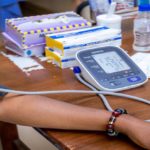The theme for this year’s International Youth Day, 2022, “Intergenerational Solidarity: Creating a World for All Ages” necessitate a revisit to what has been described by the World Health Organization (WHO) as “an insidious and often unaddressed issue in health”—Ageism.
What is Ageism?
Ageism is a systemic form of discrimination that targets members of a particular age group. According to WHO, ageism occurs when individuals discriminate against themselves or others based on their age. Although ageism affects everyone, it has a particularly negative impact on older adults and young people and societies at large.
Ageism in health
Ageism is prevalent in healthcare, affecting every aspect of care, from diagnosis to prognosis, and has negative health outcomes for both older and younger persons.
According to the United Nations’ Global Report on Ageism, which was released in March 2021, young people continue to suffer age-related barriers in many aspects of their lives, including health. Research conducted by ARHR in Ghana also found that most adolescent girls perceived being disrespected, and their concerns dismissed by health providers when accessing sexual and reproductive health services because of their age.
Consequences
Lack of knowledge and expertise about aging may cause health professionals to give older and younger patients less time, attention and inappropriate medical care which could result in a reduction in quality of life. According to studies, nurses are less kind and patient when caring for older people. This has the potential of further widening already existing inequities in healthcare.
WHO further posits that individually, these age-related restrictions can have a significant impact on well-being and livelihoods not just during the adolescent years, but also in adulthood. Ageism again stops us from thinking about and designing policies and social services that have a life-course approach and are equitable for all ages.
Way Forward
To fight this healthcare canker, it is critical for countries to integrate the WHO recommended strategies of providing education to debunk misconceptions and myths about ageism and increasing awareness of its effects; advancing intergenerational interventions that foster harmony and understanding between generations and making changes to laws and policies that can reduce inequity and discrimination.
Realizing an age-friendly healthcare would require that governments and institutions, particularly commit to these initiatives since they have the most influence over change.



